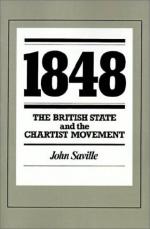|
This section contains 18,451 words (approx. 62 pages at 300 words per page) |

|
SOURCE: "Chartist Poetry and Fiction: The Development of a Class-Based Literature," in The Industrial Muse: A Study of Nineteenth Century British Working-Class Literature, Croom Helm, London, 1974, pp. 94-139.
In the following excerpt from a book about nineteenth century British working-class literature, Vicinus provides a survey of Chartist literature, both poetry and fiction.'
The Chartist movement occupies as significant a place in working-class literature as it does in the history of working people. In literature as in politics, it represented the most imposing attempt by working people to take control of their lives. The Chartists wanted to transform England into a representative democracy where the working-class voice would be heard. Their famous six points were aimed at making it possible for all Britons to participate in the political process. Only then would working people obtain universal suffrage, social justice, a taxation system that did not tax the poor...
|
This section contains 18,451 words (approx. 62 pages at 300 words per page) |

|


